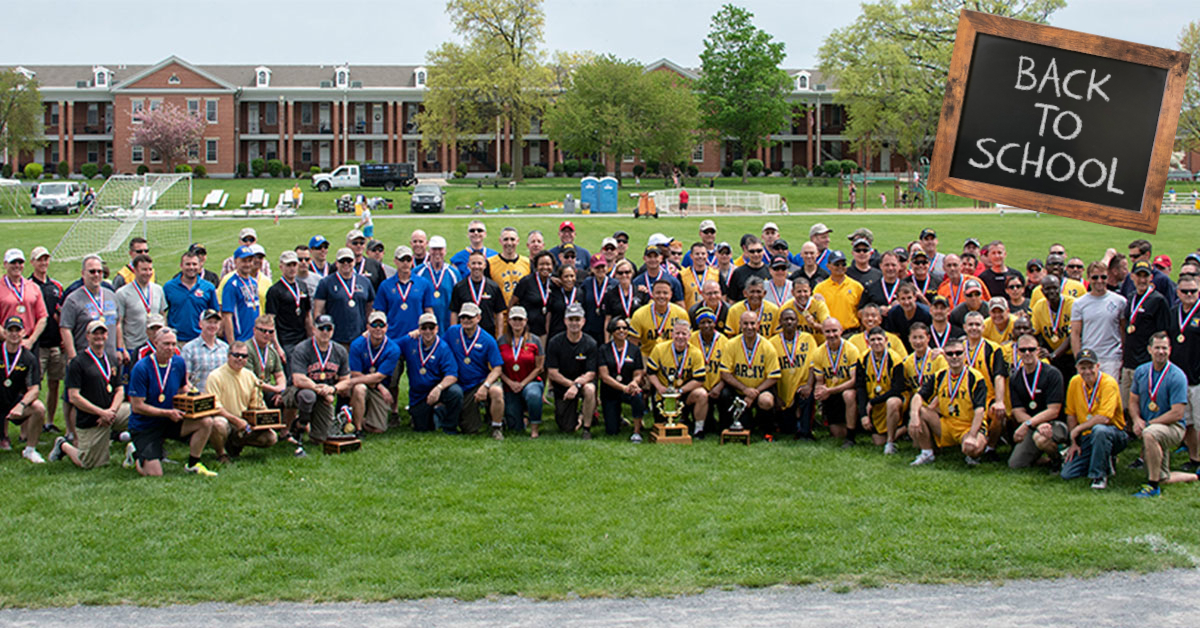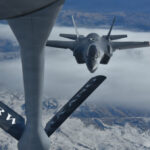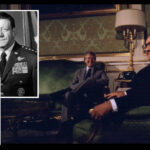
EDITOR’S NOTE: Today begins the first full week of instruction for the resident course at the U.S. Army War College. Introductions are done, orientation is over and another year of Boatyard Wars is in the books. Now students will begin to flex intellectual muscles that they may not have stretched for a few years. The editorial team thought we could help get things rolling with the strategic re-release of a few articles and podcast episodes that highlight the Carlisle Experience, the reasons War Colleges exist, useful tools for thinking, and additional programs available throughout the year.
In this first article read along as a recent U.S. Army War College graduate provides some sage advice to the incoming class on the many opportunities available outside of seminar and be sure to check out the incredible wealth of hyperlinks he provides.
The Army War College isn’t a year to ‘take a knee’
So, you’re on your way to the U.S. Army War College (USAWC) and the School of Strategic Landpower. Or, perhaps you’ve already arrived, and you want to round out your rigorous reading and writing with something a little bit different. The Army War College is more than just the core curriculum and the official requirements of professional military education (PME). Smart people have already published many articles and podcasts on PME describing its strengths and weaknesses and what they would do to improve it. So this article is about what happens outside of the seminar room. I can’t tell you which selection of additions to the core curriculum are best for you, but I can describe some of what’s out there and how I rounded out my 2018-19 Carlisle Experience. Your year at the War College will be what you make of it—why not make it what you want.
To start, the Army War College isn’t a year to “take a knee”—despite what you might hear from long-ago alumni or other well-meaning folks. You may get home to dinner and to more kids’ sporting events than in your last assignment, but the classes, speakers, noontime lectures, strategy research project (SRP), and other assignments fill up your time quickly. (Side note: You will hear the word “strategic” more often than in any other assignment you’ve had to date.) Let’s be honest, it’s not a 40-hour-a-week, 9-to-5 job. You’ll (probably) work a few nights and weekends, and there will be stress and deadlines. But managed well, you can pick up two or three Carlisle hobbies to improve your growth as a strategic leader and also have a bit of fun. I’ll focus here on the things that really can’t be done anywhere else, which are the people and events centered around Carlisle Barracks and USAWC.
There’s quite a lot that is just plain fun. My advice? Try out as many things as you can in the couple of weeks when you’re getting settled in before the classes really start. I bowled, hiked part of the Appalachian Trail, visited the Army Heritage and Education Center (AHEC) and the Hessian Powder Magazine, shot skeet, and grabbed a Cumberland County library card. Involve yourself in some purely local things—but you’ll probably find that nothing is purely local, which is part of the point. The church parish I attended in Mechanicsburg had several instructors at a local college. We spent quite a bit of time talking about my USAWC coursework, they brought in at least one AWC student to talk to their class (fulfilling the officer’s outside speaking requirement), and the rector was a guest at the National Security Seminar a few years back.
There are other fun regional things to do later in the year, like apple festivals, car shows, the Market of Curiosities (it’s like a steam punk Christmas bazaar that got weird), the Christkindlemarkt at AHEC (well-done normal Christmas gifts), hunting at the Letterkenny Army Depot, fly fishing, and eating fastnachts and scrapple. (As I’m Pennsylvania Dutch, I ate north of four pounds of it last year.) You can embrace small-town life, and still be within striking distance of New York City, Washington, D.C., Philadelphia, and Baltimore.
Unsurprisingly, there are a number of strategy-flavored treats around Carlisle. Two of my favorites were the monthly talks at local bars (beer and strategy!). Doctrine and strategy are always good fodder for discussion, and only improve over a pint or three. The first was Carlisle Strategic Sessions sponsored by Strategy Bridge. Some officers from the Pennsylvania Army National Guard took over coordination of it since the last fellow PCS’d to South Korea. It meets the third Tuesday at Desperate Times Brewery and discussions ranged from technology in “Is Urban Combat the Great Equalizer?” to songs in “Narrating the Global War on Terror: From Toby Keith to Twitter ” (They refused to let me sing karaoke. Possibly a good choice.) The other beer-supported strategy discussion is Spirit of War, which meets the fourth Thursday at Burd’s Nest. That one’s theme mixes booze and battle. My favorites were “Light Beer Saved the Union” and “Benzedrine and Blitzkrieg,” which had the best title of the year. That one was by a War College student and satisfied his outside speaking requirement. The Cumberland County Historical Society jumped into the game with their “Hops and History” series, also at Burd’s Nest, if you decide you enjoy learning things at the bar.
Carlisle Barracks itself hosts a wide array of opportunities to learn and to network. Carlisle Barracks is an archipelago – each organization on post is moderately independent from each other and retains overlapping missions and cultures, but it can be hard to decipher what’s happening at one if you’re at another. Students are only temporary inhabitants in the archipelago, so they must make special effort to experience what’s available on islands other than the School of Strategic Landpower. The Peacekeeping and Stability Operations Institute (PKSOI) writes U.S. doctrine like Joint Publication 3-07, Stability, and interacts with a host of governmental and non-governmental organizations. The Center for Strategic Leadership (CSL) runs wargaming and strategic leadership development. The Strategic Studies Institute (SSI) publishes Parameters, the quarterly Army War College periodical. Finally, just off post is the Army Heritage and Education Center (AHEC), which houses historical archival material, a museum, and a outdoor walking trail with historical displays. It’s a great place to do research for your SRP, and they host their own lecture series. Each organization holds their own conferences and has knowledgeable staff, but outside of a whirlwind mention during orientation and an occasional mention during the core classes, you need to make the personal effort to see them if you want them in your Carlisle Experience.
Carlisle Barracks itself hosts a wide array of opportunities to learn and to network
There are several social-oriented groups where the archipelago inhabitants meet. The groups are not only the current faculty and staff on post, but also former faculty who have retired in Carlisle, fellow students, and returning graduates. Events and meetings bring together a wealth of experience and are an opportunity to build your network. Plus, the events are great. The weekly fellowship breakfast at the post chapel discusses faith and ethics for the military professional. The local chapter of the Association of the United States Army sponsors the Strategic Arts Film Program’s strategic film series, right there in Root Hall, with pizza, beer, and discussion. We saw old movies and new, including an early version of Black Hawk Down: The Untold Story, about the 10th Mountain Division in Mogadishu. And there’s always the Mug Club at the Tiki Bar and Pershing Tavern, where you can meet with your seminar mates, relax, and continue arguing about what T-Diddy (a.k.a. Thucydides) really meant when he wrote about fear, honor, and interest. As an added bonus, the National Guard students meet every Thursday over at the Tiki Bar at 1636 (a nice little pun) to catch up.
Keeping on the strategy theme, Washington, D.C., is just a couple of hours drive away. You don’t have to wait until a course brings you to Washington to visit the plethora of governmental organizations and think tanks there. The Center for New American Security, the Cato Institute, American Enterprise Institute, Heritage Foundation, the Center for American Progress, and USIP (the U.S. Institute of Peace) are just a few. Sign up on their websites for notifications of their event schedules, pick the ones you like, and carpool down. The talks are great, fit the curriculum, and sometimes include lunch. Yes, you can usually view the discussions online, but there’s something extra about being there in person and having the opportunity to interact with the speakers. I skipped out on an SRP writing day to attend a panel at Cato on the return of great power competition. The panelists were very experienced and covered areas that we’d only touched on in class, like how rising powers use the informational instrument of national power to signal intent, and how existing great powers receive and process those signals. The local visit paid off for me, as one of the speakers had written a book on military governance that was tailor-made for my SRP. So maybe I didn’t play hooky, after all. The Army War College really does value student-centered learning, so if a presentation that you’re really interested in conflicts with class, ask your instructor if you can make arrangements to attend.
Eventually, someone in your seminar will start listening to strategic podcasts. They’re a great way to hear new perspectives and are convenient to listen to while you’re on the running trails, racking up miles in the free Strava Army War College running group. The Army War College has its own podcast, A Better Peace, where quite a few of the episodes relate to the curriculum. It’s almost like they planned it that way! My favorite non-AWC podcasts were from War on the Rocks: Net Assessment, Bombshell, Jaw-Jaw, and the original War on the Rocks podcast. I also got good value from The President’s Inbox, Lawfare, War College, Strategy Bridge, and Lawyers, Guns, & Money. If you like the idea of getting involved in podcasts, online journals, and #miltwitter, sign up for the Senior Leader Engagement Online elective. It gives you immense freedom in what to write and podcast about and the coaching from peers and faculty is invaluable.
The school year finishes out with the National Security Seminar (NSS). For one week your seminar receives six or seven extra guests – civilians from all over the country, in every field. They get a four-day course in the DIME (Diplomatic, Informational, Military, and Economic) instruments of national power and you get to meet civilians from all over the country—it’s a chance to start bridging the civil-military gap and is one last chance to dialogue with your home seminar. The NSS selection process is quite competitive with only about half of those nominated making the cut, so the guests are all interesting and offer much to the seminar. Take advantage of the opportunity and nominate guests yourself. The deadline is in early January.
The Carlisle Experience is available to anyone who wants to make it work. The Army War College curriculum is great and it well prepares students for their next assignments after their year of schooling. The faculty and staff take great pride in your learning and in expanding the boundaries of strategic studies. You’d have to try very hard to not get anything out of AWC. But if you engage with Carlisle and the people there, keeping watch for the opportunities that emerge, your year will be a great one. Maybe you’ll wind up being interviewed for National Public Radio. Make your Carlisle Experience really something to remember.
Andrew Diederich is a Colonel and space artilleryman in the Colorado Army National Guard and a graduate of the U.S. Army War College resident class of 2019. The views expressed in this article are those of the author and do not necessarily reflect those of the U.S. Army War College, U.S. Army, or Department of Defense.
Photo: From the closing ceremony of Jim Thorpe Sports Days 2018
Photo Credit: U.S. Army War College




